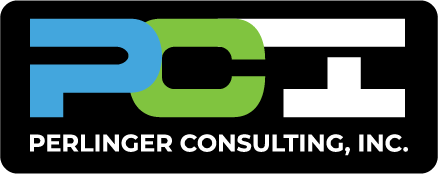Bookkeeping Confidence For SB Owners
Only about one in four small business owners considers themselves very knowledgeable about accounting. If you’re in the other 74%, you’re not alone, and it doesn’t have to stay that way. After 23 years of teaching QuickBooks and doing monthly bookkeeping for Colorado businesses, we’ve watched hundreds of owners move from uncertain to confident. This guide shows you how.

Table of contents
- Why most owners feel uncertain
- Six knowledge gaps that hold businesses back
- Practical steps to build confidence
- From 74% to 26%
- What we’ve learned in 23 years
- Your next step
1) Why most business owners feel uncertain
The reality
- You didn’t start your business to be a bookkeeper.
- Accounting terms can feel like a foreign language.
- Software is powerful, but the setup matters.
- There is no “Bookkeeping 101” when you get a business license.
What research shows
- Only about 26% of owners consider themselves “very knowledgeable” about accounting.
- 45% of SMBs say manual invoice review is a problem in payments. PYMNTS
- Owners spend meaningful time each month on the books, with estimates ranging from 10–15 hours monthly to 80 hours a year. blog.csiaccounting.com+1
The cost of uncertainty
- Decisions get made on incomplete information.
- Tax deductions are missed.
- Cash feels tight even when profit looks fine.
- Stress replaces strategy.
2) The six knowledge gaps that hold businesses back
Gap 1: Cash flow vs. profit
Your bank shows $15,000. Your Profit & Loss shows $8,000 profit. Both are real.
- Cash is what’s in the bank today.
- Profit is revenue minus expenses over a period.
You can be profitable and cash-poor if customers haven’t paid. You can have cash with thin profit if bills are due next week.
Why it matters: Taxes, timing, hiring, and purchases all depend on understanding this.
Helpful explainer: Cash vs. accrual and timing differences. NerdWallet
Gap 2: Mixing personal and business expenses
Quick “just this once” swipes blur the true picture.
- Books become inaccurate.
- Tax prep gets harder.
- Liability protection can be at risk.
Fix: Open a dedicated business bank account and card. Use them only for business. Pay yourself on a schedule.
Gap 3: Tracking too much or too little
- Over-tracking: Dozens of tiny categories waste time.
- Under-tracking: “General expense” hides what’s really happening.
Sweet spot: Track the few things that drive decisions for your industry: labor, materials, rent, utilities, marketing, professional services, and COGS. If a category never changes your decisions, you probably don’t need it.
Gap 4: Not reconciling regularly
Reconciliation means comparing QuickBooks to the bank and card statements and matching them.
Why owners skip it:
- They don’t know they should.
- They don’t know how.
- It feels tedious.
What goes wrong without it:
- Missed or duplicate transactions.
- Bank errors go unnoticed.
- Fraud slips through.
Standard: Reconcile monthly at minimum. Weekly is better for active companies.
Gap 5: Misreading AR and AP
- Accounts Receivable (AR): customers owe you.
- Accounts Payable (AP): you owe vendors.
An invoice is not cash. AP due next week is real cash out the door. AR and AP discipline is the heart of cash flow. Many firms still handle AR/AP manually, and most haven’t fully automated AR, which delays billing and collection. PYMNTS
Gap 6: Not reviewing the core reports
Three reports every owner should know:
- Profit & Loss: Did I make money this month or quarter?
- Balance Sheet: What do I own and owe today?
- Cash Flow Statement: Where cash came from and where it went.
You don’t need to be an accountant. You need to read these like a dashboard and spot when something looks off.
3) How to build bookkeeping confidence
Step 1: Get current and accurate
You can’t build confidence on shaky data.
- Catch up to last month.
- Enter everything.
- Reconcile bank and credit card accounts.
- Start each month with a clean slate.
Local help: If you’re in Littleton, Centennial, the Denver Metro, and beyond, our monthly small business bookkeeping team can get you current and keep you current.
→ Internal link: Bookkeeping Services
Step 2: Learn the basics that matter
Focus on a small set of skills:
- Read a P&L.
- Understand reconciliation.
- Know when cash vs. accrual changes the story.
- Categorize common transactions.
- Ask for help when you feel unsure.
Resources
- Plain-English walkthroughs of software vs. spreadsheets from QuickBooks. QuickBooks
- Clear comparison of cash vs. accrual. NerdWallet
Prefer hands-on help? We teach QuickBooks training in Lakewood, DTC, and Cherry Creek, plus remote options.
→ Internal link: QuickBooks Training
Step 3: Create a simple monthly review routine
Spend 30 minutes each month on:
- P&L: Revenue, gross margin, net profit, big movers.
- Balance sheet: Cash position, AR, AP, credit card balances.
- Budget vs. actual: Where are you off plan and why.
- AR aging: Who owes you, how long, and what to do next.
Tip: Put this as a recurring calendar event right after your monthly bank statements arrive.
Step 4: Tighten AR and AP with light automation
- Send invoices same day.
- Turn on automatic reminders.
- Require deposits for large jobs.
- Pay vendors on schedule, not ad hoc.
Manual steps are a top pain point for nearly half of SMBs. Start with small wins that remove manual review. PYMNTS
Step 5: Decide what to keep and what to outsource
Do the math:
- Your time value × hours per month on bookkeeping = your true cost.
Typical owners spend 10–15 hours monthly, and many still log ~80 hours a year on bookkeeping and tax tasks. blog.csiaccounting.com+1
If you enjoy the work and you’re accurate, keep it. If not, shift the load so you can focus on sales and delivery.
4) The path from 74% to 26%
What confident owners do differently:
- Review financials monthly, sometimes weekly.
- Keep books current instead of catching up in bursts.
- Ask questions until they truly understand.
- Use simple systems and repeatable checklists.
- Get help when they hit the edge of their knowledge.
It isn’t about becoming an accountant. It’s about understanding your numbers well enough to make solid decisions and sleeping better at night.
5) What we’ve learned in 23 years
Struggling owners often avoid their reports, repeat the same mistakes, scramble at tax time, and run the business by gut.
Thriving owners know their numbers, catch problems early, plan for taxes, and make decisions backed by data.
The difference is education and systems, not intelligence.
6) Your next step
This week
- Pull last month’s P&L.
- Read it line by line.
- Write down three questions you can’t answer.
- Get answers from a trusted source or a pro.
This month
- Get caught up to last month.
- Reconcile bank and credit card accounts.
- Put a 30-minute monthly review on your calendar.
- Decide: DIY with training or outsource monthly bookkeeping.
This quarter
- Invest a few hours in learning.
- Tighten AR and AP with a basic automation step.
- Build confidence through repetition.
How we can help
- QuickBooks training in person and remote.
- Monthly bookkeeping with accurate accounting and clean reconciliations.
- Cleanup and catch-up if you’re behind.
- Plain-English consultations to answer the questions you’ve been afraid to ask.
Image recommendation
Add a simple dashboard screenshot mockup with neutral UI showing a P&L, AR aging, and bank reconciliation checklist. Alt text: “Small business bookkeeping dashboard with Profit and Loss, AR aging, and monthly reconciliation checklist for Colorado owners.”
Sources for statistics and definitions
- Only ~26% very knowledgeable about accounting. Summary of Wasp Barcode’s State of Small Business findings as cited by Hiscox. Hiscox
- Manual invoice review is a pain point for 45% of SMBs. PYMNTS survey on SMB payments and invoice complexity. PYMNTS
- Owners spend meaningful time on bookkeeping. CSI Accounting estimates 10–15 hours per month; Neat reports ~80 hours per year. blog.csiaccounting.com+1
- Most firms have not fully automated AR (context for AR/AP discipline). PYMNTS on manual AR practices. PYMNTS
- Cash vs. accrual definitions and implications. NerdWallet explainer. NerdWallet
- Financial literacy context among small business owners. QuickBooks financial literacy roundup. QuickBooks
Friendly disclaimer

This article is educational and not tax, accounting, or legal advice. Perlinger Consulting, Inc. is an independent firm and not affiliated with Intuit. We participate in the QuickBooks ProAdvisor program and can provide discounted QuickBooks Online subscriptions when appropriate. Always consult your professional advisor for guidance specific to your business.
Ready to feel confident about your books? If you’re in Littleton, Centennial, the Denver Metro, and beyond, let’s get your books current, reconciled, and decision-ready. Visit perlingerconsulting.com to get started.

PerAdMin
October 28, 2025 at 6:47 pmAre you one of the one in four small business owners who doesn’t really understand your finances?